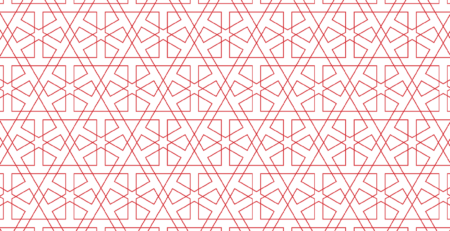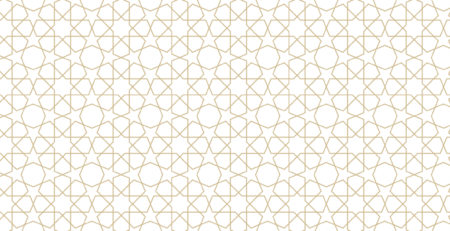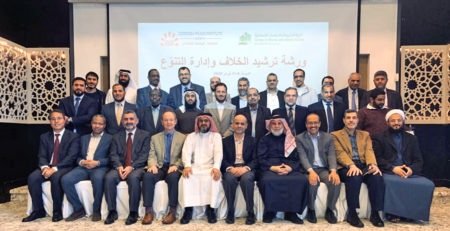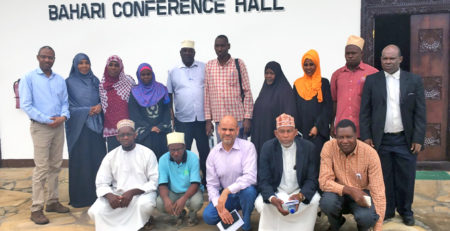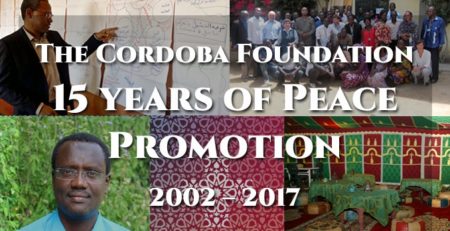The Cordoba Update 16/2016
|
The bi-weekly CORDOBA UPDATE is the product of continuous monitoring work, carried out by the Cordoba Foundation of Geneva team. By analysing and reporting on key events and trends in the Foundation’s areas of interest, we aim to draw readers’ attention to pertinent developments in North Africa, the Sahel, West Asia and Europe, which are not always covered in ‘mainstream’ media. In addition to sharing news from these four regions, the Cordoba Update is an opportunity for the Foundation to provide regular updates on its publications, events and other developments. In line with the programmes and projects funded by partners of the Cordoba Foundation of Geneva, updates and information are included under the following themes:
For questions and/or feedback regarding the content and form of the Cordoba Update, please contact Sarah Franck: sarah.franck@cordoue.ch Le CORDOBA UPDATE est un bimensuel qui présente le travail continu de suivi réalisé par l’équipe de la Fondation Cordoue de Genève. Par l’analyse des événements et tendances qui concernent les domaines d’intérêt de la Fondation, nous visons à attirer l’attention de nos lecteurs sur les développements pertinents en Afrique du Nord, dans le Sahel, en Asie de l’Ouest et en Europe, une actualité qui n’est pas toujours couverte dans les médias dits ‘traditionnels’. Outre le partage de l’actualité de ces quatre régions, le « Cordoba Update » est un moyen pour la Fondation de fournir des mises à jour régulières sur ses publications, événements et autres développements. En accord avec les programmes et projets financés par les partenaires de la Fondation Cordoue de Genève, les mises à jour et informations concernent les thèmes suivants :
Pour des questions et / ou des commentaires concernant le contenu et la forme du Cordoba Update, veuillez contacter Sarah Franck : sarah.franck@cordoue.ch |
ISLAMIST-SECULAR RELATIONS / RELATIONS ENTRE SÉCULIERS ET ISLAMISTES
No contribution on this topic
TRANSITION AND POLITICAL PARTICIPATION / TRANSITION ET PARTICIPATION POLITIQUE
Liban, 26.09.2016 : 45e séance parlementaire dans un contexte de pressions du CPL
Craignant de ne pas atteindre une fois encore le quorum des deux tiers de députés, le premier ministre n’a pas encore décidé s’il allait appeler à la tenue de la 45e séance parlementaire dont un des dossiers principaux est l’élection d’un nouveau président. Sur ce dernier point, la majorité des acteurs prévoit le maintien du statu quo. Or, mercredi 28 septembre l’agenda devrait contenir également deux autres débats brûlants : la succession du général Jean Kahwagi, commandant en chef de l’armée, et du chef d’état-major, Walid Selman, dont les mandats arrivent à terme le 30 septembre prochain. Alors qu’une large majorité verrait favorablement le report du départ à la retraite du chef de l’armée afin d’éviter une autre vacance institutionnelle, le Courant patriotique libre (CPL) s’y oppose ardemment. Ce parti avait annoncé en début du mois son boycott des séances parlementaires en invoquant la « non-conformité au pacte national » et le « manquement aux droits des chrétiens » pour justifier sa décision. Depuis, il a augmenté la pression en menaçant de descendre dans les rues si aucun déblocage ne se produit au niveau de la présidentielle et de la loi électorale. Les partisans du CPL ont annoncé que les préparatifs pour les manifestations étaient terminés et ils n’attendaient plus que le signal de monsieur Michel Aoun, figure historique du mouvement, pour se déployer. Selon des sources du parti, il s’agirait d’un mouvement allant en s’intensifiant du mercredi 28 septembre au jeudi 13 octobre. Le but de ce mouvement serait de pousser les autres partis à respecter le Pacte National prônant le partenariat entre chrétiens et musulmans.
Liens pour plus d’informations :
http://www.lorientlejour.com/article/1009307/hariri-veut-jouer-sa-derniere-carte
http://www.lorientlejour.com/article/1009309/le-conseil-des-ministres-se-tiendra-t-il
http://www.naharnet.com/stories/en/217121-report-fpm-s-street-rallies-awaiting
Bahrain, 22.09.2016: Dismissal of the appeal against dissolution of Shi’ite opposition group
The appeals court in Bahrain’s capital, Manama, has upheld a decision taken by a lower court in July to dissolve the Shi’ite opposition group al-Wefaq. The decision in July was widely condemned, by the United States and the United Nations among others.
The lower court had ruled on accusations that al-Wefaq was “harboring terrorism.” It ordered that the group be dissolved and that its funds be seized by the government. The Shi’ite group was also accused of inciting violence and encouraging demonstrations fomenting sectarian strife in the Shi’ite-majority but Sunni-ruled state.
Rights advocates have criticized the dismissal, describing it as part of the Bahraini government’s crackdown on dissent. “The decision to uphold the dissolution of al-Wefaq is a flagrant attack on freedom of expression and association and a brazen attempt to suppress criticism of the government in Bahrain. The Bahraini authorities have not presented any credible evidence that al-Wefaq is anything but a peaceful opposition movement which has been seeking reform in the country in the face of increasing government repression,” stated Philip Luther, research and advocacy director for the Middle East and North Africa at Amnesty International.
Al Wefaq, a bloc of mainly Shi’ite groups who have been at the forefront of calls for democratic reforms, has 45 days to file another appeal at the court of cassation.
Links for more information:
http://www.reuters.com/article/us-bahrain-alwefaq
https://www.rt.com/news/360295-bahrain-outcry-Shi’ite-opposition
http://www.dw.com/en/bahrain-court-upholds-dissolution-of-main-Shi’ite-opposition-group
http://www.alwasatnews.com/news/1161434
Egypt, 14-17.09.2016: The Coptic Church and Sisi’s visit to New York
Nearly 800 Christians, including authors, academics, activists and professionals, signed an online statement expressing concern about what they see as the church’s deepening involvement in politics. The statements said, “We stress our opposition to Egyptian churches taking the lead in mobilizing demonstrations, regardless of whether they are for or against the president. It’s a departure from the rules of democracy as well as dragging religion into politics.” It added, “We urge Egyptian churches to stay clear of politics and restrict themselves to their spiritual and religious tasks.” They criticize the Coptic Orthodox Church’s widespread support of Abdel Fattah al-Sisi’s visit to New York for the 71st meeting of the United Nations General Assembly. Sisi’s visit was praised by leaders from the Coptic Church, who called on Coptic communities in the US to come out in a show of support for the president. The Coptic Church also sent senior clerics, including Bishop Biemen, a close aide to Pope Tawadros II, to New York to rally support for the president. According to ABC news report, “Authorities in Egypt are pulling out all the stops to ensure that President Abdel-Fattah el-Sisi’s visit to New York for the U.N. General Assembly is a diplomatic success despite growing criticism of the country’s human rights record under his rule.”
Meanwhile, An Egyptian court upheld an administrative order to freeze the assets of five well known Egyptian rights activists over accusations of receiving foreign funding to destabilize the country following the 2011 uprising. The activists include Hossam Bahgat, founder of the Egyptian Initiative for Personal Rights (EIPR), Gamal Eid, founder of the Arab Network for Human Rights Information and Bahey El-Din Hassan, director of the Cairo Institute for Human Rights Studies (CIHRS). In addition, Egypt’s foreign ministry denounced a White House statement calling for the release of Egyptian-US activist Aya Hegazy, who is jailed over accusations of “exploiting street children.” Last week, the regime released hundreds of prisoners so that they can spend the holiday of Eid al-Adha with their families. But only those with criminal backgrounds spent time with their families. Political prisoners have been denied the same luxury, as the regime continues to persecute political opponents, including human rights activists, lawyers and journalists.
Links for more information:
https://www.washingtonpost.com/world/middle_east/egypts-coptic-church-criticized
http://abcnews.go.com/International/wireStory/egypt-pulls-stops-el-sissis-visit
http://www.madamasr.com/news/coptic-activists-criticize-churchs-support-sisis-new-york-visit
http://english.ahram.org.eg/NewsContent/1/64/244093/Egypt/Politics-/Egypt-court-upholds-asst
http://english.ahram.org.eg/NewsContent/1/64/244179/Egypt/Politics-/Egypt-denounces-White-House-call
http://www.citizen.co.za/1283547/egypt-refuses-to-free-political-prisoners-for-muslim-holiday
Egypt, 13-18.09.2016: Egypt’s economy, army and British support
After Egypt reached a preliminary agreement for a US$12 billion loan program from the International Monetary Fund, it is in talks with China to obtain US$2 billion in financing. Before the IMF financing, the government introduced a value-added tax, raised electricity prices and sought other cost savings to shrink the budget deficits. Economists say inflation, currently almost 16 percent, may reach 20 percent by the end of the year with the VAT. Meanwhile, the Royal Dutch Airlines-KLM says it will temporarily suspend flights to and from Cairo in January, citing “economic reasons.” The KLM’s statement says the devaluation of the Egyptian pound and restrictions imposed by the country’s central bank on the transfer of foreign currency out of Egypt are behind the decision.
Mada Misr reported that since Abdel Fattah al-Sisi’s appointment in mid-2014, the Armed Forces’ economic activities have expanded and diversified. According to researchers, the last 12 months have witnessed swift expansion into several sectors, documentation for which can be found in the Official Gazette, minutes of official meetings and media reports. The report includes a long list of projects and assets controlled by the army. Among other items, the army will establish a factory for producing vaccines, import stents for cardiac patients, provide medicine to all university medical schools, and disseminate hundreds of thousands of water meters and smart cards for government employees, with which their movements at work can be monitored. According to Haaretz, “an analysis of the causes of Egypt’s economic crisis cannot overlook the enormous losses the country incurs due to the army’s control of the economy.”
Mark Curtis, historian and analyst of British foreign policy, wrote that “Britain has struck a new special relationship with the military rulers of Egypt which is as deep as it is worrying. He referred to one of UK Defence Secretary Michael Fallon’s several recent visits to Egypt in August 2015 and quoted the government’s statement: ‘during his visit Mr Fallon discussed Britain’s support for security and for economic progress and democracy in Egypt, as a vital element of restoring stability in the region’. Curtis added that “these words are code and surely well-understood on both sides: what was meant was that ‘Mr Fallon discussed Britain’s support for the pro-Western regime (‘security’) and for British commercial interests (‘economic progress’) and authoritarianism (‘democracy’) as a vital element of maintaining repression (‘stability’) in the region’. Curtis asserted “the primary reason for British backing of el-Sisi is that the regime’s repressive rule is creating good conditions for furthering British investment.” What is important is what Curtis described as “the major prize for the British” which is the signing of a massive $12 billion investment deal by BP for an oil and gas project in the West Nile Delta offshore Egypt. The agreement is the single largest investment deal in Egypt’s history. According to Curtis, Morsi’s government was a serious obstacle to this oil and gas deal, with some leading figures objecting to BP’s demands and demanding far better terms. “The new deal under the military regime now offers BP exceedingly generous terms,” Curtis added.
Links for more information:
http://www.reuters.com/article/egypt-bonds
http://www.foxnews.com/world/2016/09/14/klm-to-suspend-egypt-flights
http://www.madamasr.com/sections/economy/armed-forces-and-business-economic-expansion
http://www.bloomberg.com/news/articles/2016-09-19/egypt-to-seek-imf-board-approval
http://www.haaretz.com/middle-east-news/.premium
http://www.huffingtonpost.co.uk/mark-curtis/britain-egypt-foreign-policy
Maroc, 26.09.2016 : Début de campagne mouvementé au Maroc
En tant que parti à la tête du pays, le Parti de la Justice et du Développement (PJD) est au cœur de l’actualité marocaine. L’organisation d’une marche ayant réuni 45000 personnes selon certains médias le 18 septembre à Casablanca visant à dénoncer la politique menée par le parti depuis les dernières élections, et particulièrement « l’islamisation » de la société marocaine selon les détracteurs du PJD, annonce un début de campagne mouvementé au Maroc. Le PJD n’a pas manqué de réagir à chaud, le lendemain de la marche, par la parole de M. Benkirane, chef du gouvernement ainsi que secrétaire général du PJD, mais aussi le 25 septembre lors d’un rassemblement pour le lancement de campagne du parti. M. Benkirane a tout d’abord tenté de tempérer la situation en évoquant le fait qu’il acceptait que des citoyens pouvaient être contre lui, mais a rapidement contre-attaqué en ironisant sur la spontanéité d’une telle manifestation et sur les réelles motivations des participants.
Il est vrai que la presse marocaine est divisée sur l’organisation de cette manifestation. En effet, après avoir interviewé quelques participants il semblerait que certains ne savaient pas vraiment pour ou contre quoi ils manifestaient, et d’autres auraient franchement admis avoir reçu des cadeaux ou compensations en échange de leur participation. L’organisation de bus et autres moyens de transport afin d’acheminer de nombreuses personnes ainsi que l’encadrement par les autorités locales permettent aussi de douter sur la démarche sincère de cet « élan citoyen ». Pourtant, aucun parti politique ou organisation quelconque n’a pour l’heure revendiqué la démarche.
Cette marche n’est pas la seule tentative d’intimidation afin de limiter l’avancée des islamistes, qui ne se restreignent pas seulement aux PJDistes / Frères Musulmans. En effet, la candidature de la figure salafi Hammad Kabbaj en tête de liste à Marrakech (voir Cordoba Update N. 15/2016 ) a été invalidée par le gouverneur de la région qui a donné pour raison des opinions qu’aurait exprimé M. Kabbaj dans le passé qui vont à l’encontre des « principes élémentaires de la démocratie, affirmées par la Constitution du royaume, et cela à travers l’expression d’idées extrémistes qui incitent au racisme, à la haine et à la violence au sein de la société marocaine”.
Liens pour plus d’informations :
http://www.huffpostmaghreb.com/2016/09/19/marche-anti-pjd-divise-presse-marocaine
http://www.huffpostmaghreb.com/2016/09/19/benkirane-pjd-maroc
http://telquel.ma/2016/09/25/20-000-pjdistes-reservent-un-accueil-de-rockstar
http://www.huffpostmaghreb.com/2016/09/18/pjd-islam-benkirane
http://www.huffpostmaghreb.com/abdelkhalek-zyne/la-manif-anti-pjd-ou-lostracisme-social-bourgeois
http://www.france24.com/fr/20160926-elections-legislatives-maroc-pjd-islamistes
http://www.yabiladi.com/articles/details/47127/bras-electoral-manifestation-spontanee
https://ledesk.ma/2016/09/18/qui-est-derriere-le-mysterieux-appel-a-participer-a-une-marche-contre-le-pjd
http://www.huffpostmaghreb.com/2016/09/16/hammad-kabbaj-pjd
http://northafricapost.com/14137-morocco-march-casablanca-instrumentalization
http://www.moroccoworldnews.com/2016/09/196886/controversy-over-marrakech-governors-decision
RELATIONS BETWEEN COMMUNITIES OF DIFFERENT ETHNIC, CULTURAL AND RELIGIOUS AFFILIATIONS /
RELATIONS ENTRE COMMUNAUTÉS DE DIFFÉRENTES AFFILIATIONS ETHNIQUES, CULTURELLES ET RELIGIEUSES
Yémen, 26.09.2016 : Les Houthis proposent une trêve à la frontière avec l’Arabie saoudite
A New York le vendredi 23 septembre 2016, les représentants pour les Droits Humains auprès des Nations Unies ont exprimé leur inquiétude face à l’intensification des combats et bombardements au Yémen, alors que les pourparlers de paix sont suspendus depuis le 6 août dernier.
Dans ce contexte, le président du Conseil politique suprême, institution exécutive proclamée en juillet dernier par les Houthis et la fraction pro-Saleh du Congrès général du peuple, M. Saleh al-Samma, a demandé « un arrêt de l’agression terrestre, aérienne et navale, une cessation des raids aériens et la levée du blocus imposé à notre pays, en échange d’un arrêt des opérations de combat à la frontière et des tirs de missiles en territoire saoudien » par les combattants Houthis. Selon le media Reuters, cette déclaration intervient quelques jours après la mort du Général Hassan Almalsi, chef des forces spéciales des Houthis, tué alors qu’il « cherchait à faire entrer secrètement un groupe de combattants en Arabie saoudite ». Le dirigeant Houthi, Saleh al-Samma, a également proposé une « amnistie générale aux combattants qui se sont rangés aux côtés de l’agression », faisant allusion aux forces pro-Hadi.
Cette proposition de trêve intervient alors que John Kerry a déclaré le 25 août 2016 qu’un accord avait été trouvé pour une reprise des pourparlers de paix, l’un des objectifs de ces discussions étant de former un gouvernement d’union nationale. Cette nouvelle initiative de paix prévoit l’intégration des Houthis au gouvernement d’union nationale à condition qu’« ils se retirent de la capitale Sanaa et de larges zones du nord du pays et qu’ils cèdent leurs armes lourdes à une tierce partie ».
Le contexte régional est toujours tendu notamment entre les deux puissances, iranienne et saoudienne. Le grand mufti d’Arabie saoudite a en effet déclaré le 6 septembre dernier : « Vous devez comprendre qu’eux (les Iraniens) ne sont pas musulmans, ils sont les fils de Magi (zoroastriens), et leur hostilité envers les musulmans, en particulier les sunnites, est ancienne ». Une déclaration faite en réaction aux paroles de l’ayatollah Ali Khamenei qui déclara le 5 septembre 2016, soit un jour avant : “Les officiels saoudiens tentent de dissimuler leur hostilité et leur haine envers le peuple fidèle et révolutionnaire d’Iran en parlant de politisation du hajj. Ils sont de petits et pitoyables démons qui sont très effrayés de compromettre les intérêts du grand Satan, les Etats-Unis ». Loin d’une désescalade, les tensions sont donc toujours bien présentes et selon Javid Ghorban-Oghli, ancien directeur général des affaires pour le Moyen Orient au sein du ministère des affaires étrangères iranien : « le conflit (au Yémen) a pour origine les rivalités entre l’Arabie saoudite et l’Iran », un processus qui selon lui aurait commencé « après la chute de Saddam Hussein et le déséquilibre régional que cela a créé ». Il ajoute que « la rivalité a commencé entre l’Iran et Riyad et leurs pays voisins, et après le printemps arabe, la rivalité s’est transféré à la Syrie et s’est intensifiée »
Dans le même temps, la Grande-Bretagne s’est prononcée contre la mise en place d’une commission d’enquête internationale sur la guerre au Yémen. Cette enquête est notamment demandée par l’organisation Human Rights Watch (HRW) pour « établir les faits, récolter et préserver l’information liée aux violations et abus dans l’objectif d’assurer que les responsables de ces crimes soient menés devant la justice et jugés au sein de procès équitables ». La Grande-Bretagne et les Etats-Unis soutiennent la coalition menée par l’Arabie saoudite, notamment à travers la vente d’armes, depuis le début des combats, selon Middle East Eye, à savoir depuis plus de 18 mois. Selon les journalistes Peter Osborne et Nawal Al-Maghafi, qui sont parmi les rares journalistes à avoir enquêté sur le terrain ces derniers mois, la tragédie des Yéménites n’attire pas l’attention de la communauté internationale et des Européens en particulier. En effet, pour fuir leur pays les migrants devraient passer soit par le territoire saoudien soit par l’Erythrée, pays inhospitalier connu pour ses exactions. Ils n’atteignent donc que rarement l’Europe. Selon les deux journalistes, même si leur situation est donc « presque aussi désespérée que celle des victimes de la guerre en Syrie, les Yéménites sont invisibles pour l’Europe ».
Liens pour plus d’informations :
http://www.reuters.com/article/us-usa-kerry-saudi
http://www.middleeasteye.net/fr/reportages/exclusif-un-d-sastre-est-en-cours-au-y-men
http://www.middleeasteye.net/news/yemen-houthi-rebel-leader-proposes-border-truce
http://www.24heures.ch/monde/Un-rebelle-propose-une-treve-a-la-frontiere-arabe/story/14687524
https://english.alarabiya.net/en/News/middle-east/2016/09/26/Yemen-militia-leader-offers-border-truce
http://www.al-monitor.com/pulse/originals/2016/09/iran-saudi-war-of-words-grand-mufti-khamenei
http://www.nytimes.com/2016/09/24/world/middleeast/over-300-civilians-have-been-killed-in-yemen-since-august
http://news.trust.org/item/20160925194044
https://www.letemps.ch/monde/2016/09/26/dixhuit-mois-bombardements-plus-tard-yemen
https://www.theguardian.com/world/2016/sep/24/yemen-britain-human-rights-inquiry
Europe-Calais, 26.09.2016 : A Calais, le président français François Hollande déclare le démantèlement complet de la « Lande »
Le président François Hollande a annoncé lundi 26 septembre 2016 que le gouvernement français se préparait au démantèlement complet du campement de la Lande de Calais, surnommé la « jungle de Calais ». Selon lui les objectifs de la France sont clairs, à savoir : « garantir la sécurité des Calaisiens, maintenir l’ordre public et assurer aux migrants, aux réfugiés, des conditions dignes, parce que nous sommes la France ». Il a en outre rappelé à l’ordre le Royaume-Uni en soulignant sa « détermination à voir les autorités britanniques à prendre leur part dans l’effort humanitaire que la France accomplit ici et continuera à accomplir demain » car selon lui en effet « ce n’est pas parce que le Royaume-Uni a pris une décision souveraine que le Royaume-Uni est dégagé de ses obligations par rapport à la France ».
Selon les autorités, 7’000 personnes vivraient dans des conditions indignes à Calais et 10’000 selon les ONG et autres organisations venant en aide aux migrants sur place.
Cette déclaration du président François Hollande intervient en pleine campagne électorale et alors que ce dernier avait déclaré que les migrants seraient « relocalisés » dans différentes villes à travers le pays, ce qui avaient provoqué de vives réactions de la part des partis de droite. Selon ces derniers en effet, le problème de la « jungle de Calais » doit se régler avant tout avec les Britanniques.
Liens pour plus d’informations :
http://www.rfi.fr/contenu/ticker/francois-hollande-visite-calais-demande-britanniques-prendre-leur-part
http://www.lemonde.fr/immigration-et-diversite/article/2016/09/26/hollande-s-engage-a-demanteler-completement
https://www.theguardian.com/world/2016/sep/26/calais-migrant-camp-must-go-by-end-of-year-francois-hollande
http://foreignpolicy.com/2016/09/26/france-to-u-k-brexit-doesnt-mean-you-cant-help-us-handle-the-crisis-in-calais
VIOLENT EXTREMISM AND THE WAR ON TERROR / EXTRÉMISME VIOLENT ET LA GUERRE CONTRE LA TERREUR
Egypt & USA, 21-24.09.2016: Sisi: We should use ‘Islamic Extremism’ as a term; Trump: Sisi is a fantastic guy
During an interview broadcast on 21 September 2016 on CNN, Egyptian Abdel Fattah el-Sisi stated that “Islamic rhetoric” must be corrected, and we should use the term “Islamic extremism” because “It is really important that we state the truth, so that we could correct it.” Sisi, the first Muslim world leader to meet with US presidential nominee Donald Trump, also says that Trump would “no doubt” make a strong leader. A day after, Trump said about his meeting with Sisi, “I thought it was very productive. He’s a fantastic guy,” Trump said of Sisi. “I thought it was a great meeting. We met for a long time, actually. There was a good chemistry there. You know when you have good chemistry with people. There was a good feeling between us.”
When asked about Trump’s proposed Muslim ban, Sisi said “The United States in general conducts very strict security measures for everyone who wishes to visit it, which has been in place for quite a few years.” He said, “It’s also important to know that during election campaigns many statements are made and many things are said, however afterwards governing the country would be something different. And will be subject to many factors.” Weeks prior, Trump said that he is willing to work with Egypt, Jordan, and Israel to extinguish Islamic extremism. He said, “We will work side by side with our friends in the Middle East, including our greatest ally Israel. We will partner with King Abdullah of Jordan and the president of Egypt, President [Abdel Fattah] Al-Sisi.”
During his interview with CNN, Sisi was asked “Do you think Hillary Clinton would make a good president,” referencing a woman that el-Sisi has met with on multiple occasions. He answered, “Political parties in the United States would not allow candidates to reach that level unless they are qualified to lead a country the size of the United States of America.” In the past, Clinton has referred to Egypt as “basically an army dictatorship,” comments CNN’s Burnett asked Sisi to respond to. Sisi said, “In Egypt there will not be a chance for any dictatorship because in Egypt there is a Constitution… there is law, and there is the will of the people which will refuse to allow any leader to stay in his position for any period longer than his term, which is four years.”
Sisi also said that counter-terrorism is a new element in the US aid program to Egypt, noting that there are military committees that determine Cairo’s needs to achieve security and stability.
Links for more information:
https://theconservativetreehouse.com/2016/09/24/cnn-interview-with-egyptian-president-abdel-fattah-el-sisi
http://www.politico.com/story/2016/09/trump-praises-egypts-al-sisi-hes-a-fantastic-guy
http://www.breitbart.com/video/2016/09/21/egypts-president-we-should-use-islamic-extremism-as-a-term
http://www.cnn.com/2016/09/21/us/egyptian-president-abdel-fattah-el-sisi-erin-burnett-outfront
http://www.dailynewsegypt.com/2016/08/16/trump-wants-partner-al-sisi-abdullah-jordan-israel-fight
http://www.sis.gov.eg/Story/106062
EVENT / EVÈNEMENTS
Mercredi 21 Septembre – Jeudi 22 Septembre 2016, Doha : Atelier d’experts sur l’interaction entre le religieux et le politique dans la sphère publique
Le mercredi 21 septembre et le jeudi 22 septembre un atelier d’experts sur l’interaction entre le religieux et le politique et la promotion de la coexistence pacifique entre acteurs politiques avec différentes visions du monde, s’est tenu à Doha (Qatar). Cette rencontre organisée par la Fondation Cordoue de Genève (FCG) en partenariat avec le Département fédéral des affaires étrangères Suisse (DFAE), a réuni des experts venus du Maroc, de Syrie, d’Algérie et de Tunisie, d’Egypte, et du Golfe. Les discussions qui se sont tenues, sous la règle de Chatham House, ont été riches et ont permis de dégager des pistes pour de nouvelles rencontres et de futures collaborations.
Une première rencontre s’est tenue au mois de mars 2016, pour plus d’informations voir le rapport ci-dessous (EN,AR):
http://cordoue.ch/workshop-reports/item/479-workshop-report-the-interaction-of-religion-and-politics-in-the-public-sphere
http://cordoue.ch/workshop-reports/item/480
The views and perspectives contained in the Weekly Update are from individual contributors and external sources, and do not necessarily reflect the opinions or position of the Cordoba Foundation of Geneva. The links are neither intended as an endorsement of particular publications nor the only source for the updates, but to connect to information in the public domain, for those interested in background or further details.






